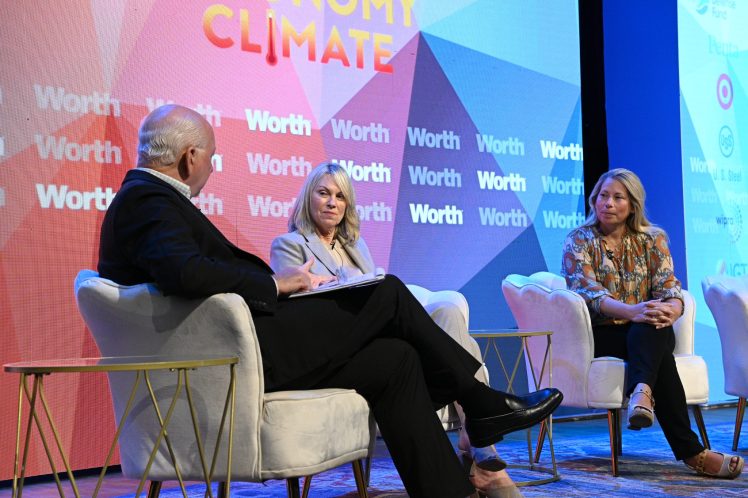Leading thinkers set the stage for a series of discussions about the multiple revolutions intersecting around the world: new technologies, new cultures, new states, new corporations and newly empowered individuals. See excerpts from the discussion below.
HAMEL: The most important technology over the last hundred years was the invention of management as a social technology. That left us with very bureaucratic organizations that were inertial, feudal, and ignored a huge amount of human creativity. What makes me really optimistic is that for the first time since the industrial age, bureaucracy has a credible competitor in terms of distributed networks of collaboration.
BENIOFF: It’s all about Wael Ghonim’s tweet, “All Egyptians come home. Egypt above all else.” It’s about Molly Catchpole against Bank of America fees: “We’re not going to pay it." Netflix - 82,000 negative comments on their [Facebook page] when they try to increase prices. It's about Occupy Wall Street. Finally, the things that we have spent the last three or four decades of our life working on are impacting the world in a positive way and creating the change we’ve all wanted since the ’60s. We heard it through the music, now we’re seeing it through the technology.
MCNAMEE: But this is all going to be disruptive, right?
HAMEL: It ain’t going to be easy for the incumbents. Occupy Wall Street and the Tea Party are barking up two sides of the same tree. Up in the tree you have big business, big government—highly centralized organizations that have a huge stake in the status quo. We live in a world where sooner or later the technologies will prevail, so I’m intensely optimistic. People all around the world are challenging the concentration of power, challenging these negotiated outcomes that take place behind the scenes.
MCNAMEE: If there’s a magic wand of technology you could wave to get rid of some social problem, what would it be?
HAMEL: Put a web cam in every legislator’s office around the world that’s broadcasting real-time, so I see every conversation, who’s influencing that person’s thinking, what promises are being made.
MCNAMEE: Occupy Capitol Hill.
BENIOFF: It’s our government, it’s supposed to be serving us. I just saw this great brochure in the green room on big data from McKinsey. Government is the biggest data of all. Let’s have an API to it. The vast majority of data in our government should be open and available to us, and we should be able to analyze it ourselves. Open it up. That’s going to happen. It’s super scary, by the way.
COOK: If there’s a wand one can wave, it’s the use of scientific experimentation inside organizations. One Intuit team in India had the idea of focusing on farmers. We’d never done anything with farmers. The bosses were uninterested. So the team went out, researched, spent time with farmers. These guys don’t know where to take their goods when they harvest them or what price to insist on. So our little team said, “Why don’t we just collect the prices and send them by SMS?” The bosses had all the reasons it wouldn’t work, but the team didn’t listen. Instead they ran an experiment. They faked up a product and tried it. Farmers on average reported 16% higher incomes, and 12 of the 14 wholesalers said they’d continue to give us the data. Now over 400,000 farmers get price information on their phones in India.
When Deng Xiaoping took over China in 1980, the country was a wreck. Starving, grinding poverty - they couldn’t create the jobs to feed their people. One thing he did was experiment. He put a fence around Zhejiang. It was freed to allow foreign investment, jobs, wealth creation. That experiment expanded to the rest of China, creating the Chinese economic miracle. And the Chinese government continues to run experiments, A/B tests to determine government policy.
BENIOFF: If you want a revolution and the case for optimism, go see all the kids that Ron Conway and Paul Graham are nurturing in their angel funds and Y Combinator. This next generation of technology is coming from the bottom up. You have to get back to the youth, the new ideas, the ability to challenge the status quo, tapping the empowerment that is now possible.







